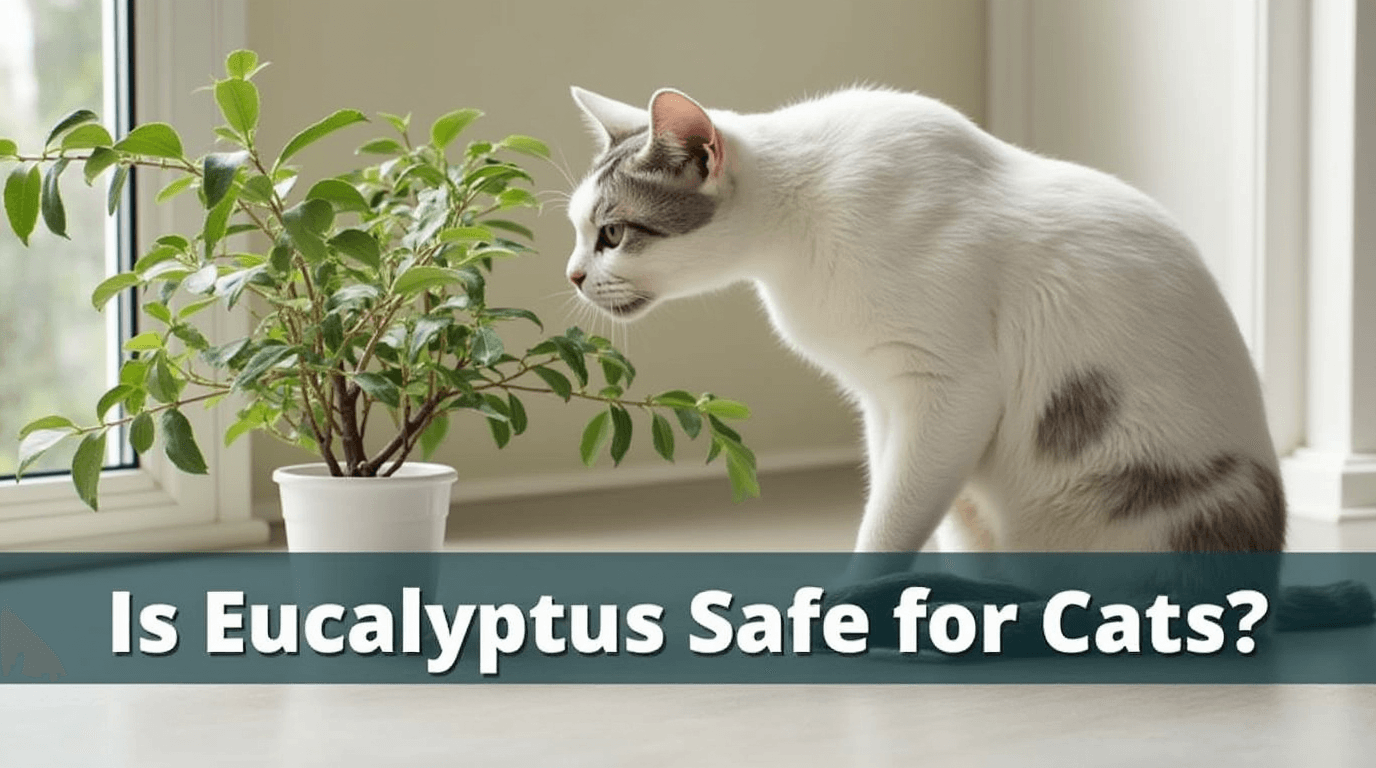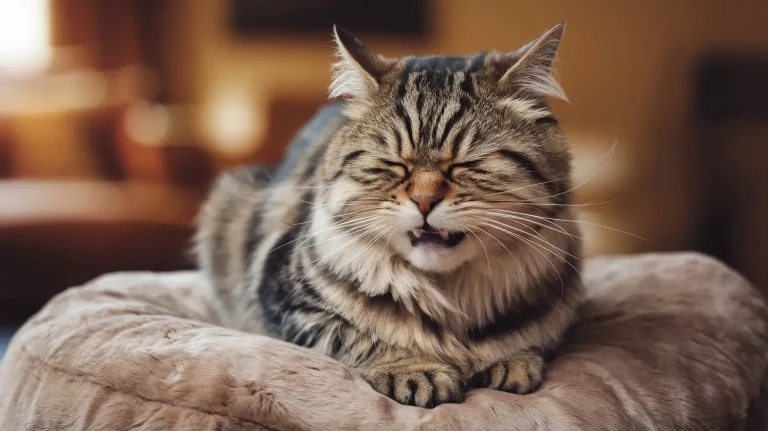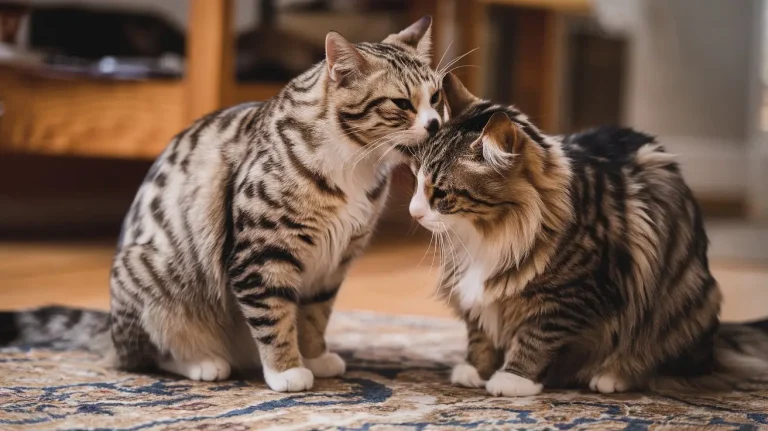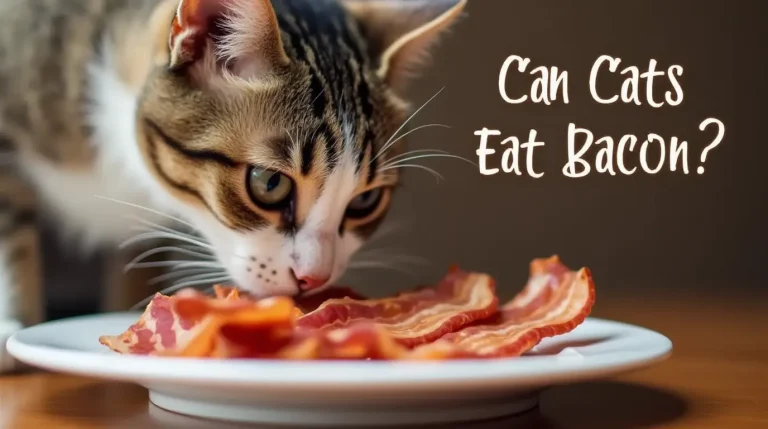Eucalyptus, a plant known for its distinctive scent and various uses in human health and wellness, poses potential risks to our feline friends. Many pet owners wonder, “Is eucalyptus safe for cats?” The answer is clear: eucalyptus, whether in the form of fresh leaves, dried plants, or essential oils, can be harmful to cats
Cats are particularly sensitive to certain compounds found in eucalyptus, such as eucalyptol, which can lead to respiratory distress, nausea, and even more severe health issues like seizures or organ damage if exposure occurs
Given their acute sense of smell and unique liver metabolism, essential oils like eucalyptus can pose significant dangers when inhaled, ingested, or absorbed through the skin
In this article, we will explore why eucalyptus is unsafe for cats, discuss the potential risks associated with its use around them, and provide expert advice on how to keep your furry companions safe.
Table of Contents
Understanding Eucalyptus Toxicity in Cats
Eucalyptus toxicity in cats is a serious concern due to the presence of harmful compounds, particularly eucalyptol, which is the primary toxic component found in eucalyptus plants and essential oils. Unlike humans, cats lack the necessary enzymes in their liver to metabolize and detoxify these compounds effectively, making them highly susceptible to poisoning when exposed to eucalyptus.
How Cats Are Exposed to Eucalyptus
Cats can come into contact with eucalyptus in various ways, including:
- Inhalation: Essential oils diffused in the air or even the scent of fresh or dried eucalyptus leaves can be inhaled by cats, leading to respiratory irritation and distress.
- Ingestion: Curious cats may chew on eucalyptus leaves or lick surfaces contaminated with eucalyptus oil, resulting in gastrointestinal upset and other systemic effects.
- Skin Contact: Direct exposure to eucalyptus oil on the skin can cause localized irritation and absorption into the bloodstream, potentially leading to more severe symptoms.
Symptoms of Eucalyptus Poisoning in Cats
The signs of eucalyptus toxicity can vary depending on the level of exposure but often include:
- Vomiting and diarrhea, as the plant material irritates the digestive system and helps expel toxins from the body.
- Excessive drooling, indicating irritation of the mouth or throat.
- Shaking, muscle tremors, or uncoordinated movement, may suggest neurological effects caused by high concentrations of eucalyptol.
- Lethargy, depression, or weakness, reflect the overall toxic burden on the cat’s body.
- In severe cases, seizures or neurological damage may occur if too much eucalyptol is absorbed.
Why Eucalyptus Is Especially Dangerous for Cats
Cats have a unique metabolic system that makes them particularly vulnerable to certain chemicals, including those found in eucalyptus. Their inability to process phenolic compounds like those in eucalyptus oil means that even small amounts can accumulate in their bodies, causing significant harm. Additionally, cats’ acute sense of smell means they are more likely to react negatively to strong scents, such as those emitted by eucalyptus oil, which can exacerbate respiratory issues.
Preventing Eucalyptus Exposure
To protect your feline companion, avoiding using eucalyptus products in environments where your cat spends time is crucial. This includes refraining from diffusing eucalyptus oil, keeping fresh or dried eucalyptus plants out of reach, and ensuring any cleaning or grooming products used around your cat do not contain eucalyptus derivatives.
By understanding the risks associated with eucalyptus toxicity, you can take proactive steps to ensure your cat remains safe and healthy. If you suspect your cat has been exposed to eucalyptus, consult a veterinarian immediately for guidance and treatment.
Why Do Cats Groom Each Other? Signs of Love, Care, and Dominance
Key Considerations for Keeping Your Cat Safe
When it comes to ensuring the safety of your feline friend, especially to potential hazards like eucalyptus, there are several key considerations that every responsible pet owner should keep in mind. Cats are naturally curious creatures, and their heightened sensitivity to certain substances makes it crucial to create a safe environment for them at home.
1. Avoiding Eucalyptus in Any Form
Eucalyptus poses a significant risk to cats in all its forms whether fresh, dried, or as an essential oil. The compounds present in eucalyptus, particularly eucalyptol, can lead to severe health issues if ingested, inhaled, or even absorbed through the skin. Therefore, it’s essential to avoid having any form of eucalyptus within reach of your cat. If you choose to have eucalyptus plants or use eucalyptus-based products in your home, ensure they are kept far away from areas where your cat spends time.
2. Monitoring Your Cat’s Environment
Creating a safe space for your cat involves more than just removing toxic plants. You should regularly inspect your home for items that could pose a threat, such as other harmful plants, chemicals, or small objects that might be swallowed. Additionally, providing your cat with designated resting and hiding places can help reduce stress and prevent unwanted encounters with potentially dangerous substances.
3. Using Pet-Safe Alternatives
If you enjoy using essential oils or aromatic plants around your home, consider switching to pet-safe alternatives. There are many plant varieties and essential oils available that are non-toxic to cats and can provide similar benefits without compromising their health. When selecting products, always check whether they are specifically labeled as safe for pets and consult with your veterinarian if you’re unsure.
4. Recognizing Symptoms of Exposure
Even with precautions, accidents can happen. It’s important to familiarize yourself with the symptoms of eucalyptus exposure, which may include drooling, vomiting, diarrhea, weakness, tremors, and respiratory distress. Early recognition of these signs is critical for prompt treatment. If you suspect your cat has come into contact with eucalyptus, contact your veterinarian immediately for advice on how to proceed.
5. Educating Yourself About Cat Safety
Knowledge is power when it comes to protecting your cat. Stay informed about common household dangers and best practices for keeping your pet safe. Resources like those provided by organizations such as the SPCA New Zealand offer valuable insights into creating a secure and enriching environment for your cat. Additionally, staying updated on the latest research regarding pet-safe products and plants ensures you’re making the best choices for your furry companion.
By taking these key considerations seriously, you can significantly reduce the risks associated with eucalyptus and other potential hazards, ensuring your cat remains happy and healthy in a safe home environment.
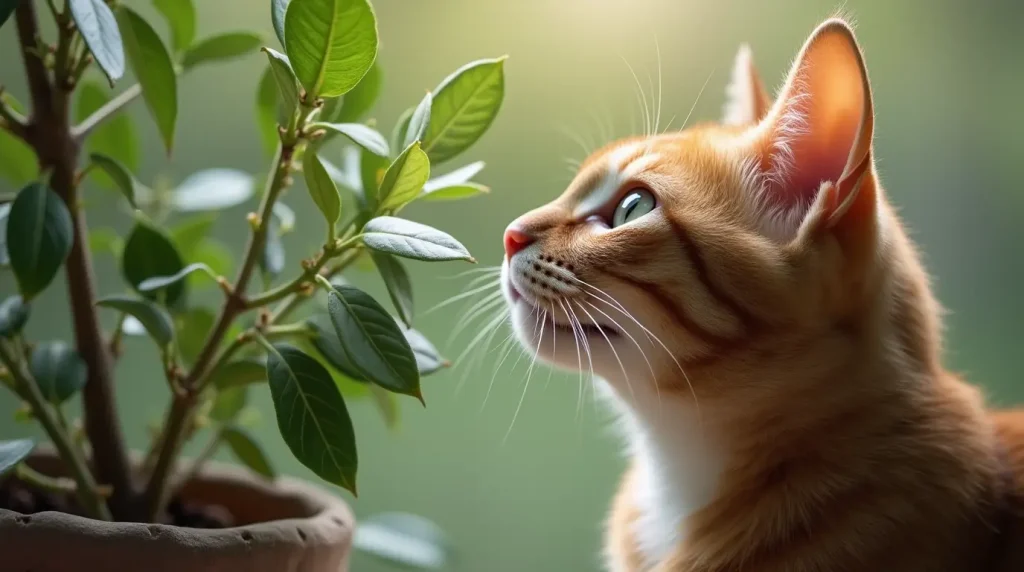
Expert Recommendations and Preventive Measures
When it comes to ensuring the safety of your cat concerning eucalyptus, expert recommendations emphasize caution and prevention as the best strategies. Given that cats are highly sensitive to essential oils and plant compounds, taking proactive steps can significantly reduce the risk of exposure and potential harm.
1. Consult Your Veterinarian
Before introducing any new substances into your home, especially those with strong scents or chemical components, always consult your veterinarian. Professionals in animal health can provide tailored advice based on your cat’s specific needs and health conditions. This is particularly important if you’re considering using products containing eucalyptus or other essential oils for therapeutic purposes.
2. Avoid Using Eucalyptus Oil Around Cats
Experts strongly advise against using eucalyptus oil near cats due to its potential to exacerbate respiratory issues. Cats have an acute sense of smell, making them more susceptible to adverse effects from strong odors like those emitted by eucalyptus oil. Even minimal exposure can lead to discomfort or distress, so it’s best to avoid diffusing such oils in environments where your cat resides.
3. Keep Eucalyptus Plants Out of Reach
If you enjoy having eucalyptus plants in your home for decorative purposes, ensure they are placed well out of your cat’s reach. Cats are naturally curious and may attempt to chew on leaves or stems, leading to the ingestion of harmful compounds. Placing these plants in elevated areas or secured spaces can help prevent accidental contact.
4. Opt for Cat-Safe Alternatives
For those seeking natural remedies or aromatic solutions that won’t harm their pets, there are numerous cat-safe alternatives available. Researching and selecting products explicitly labeled as pet-friendly ensures that you maintain a healthy environment without compromising on comfort or aesthetics. Always prioritize the safety of your feline companion when exploring options.
5. Educate Yourself About Toxic Substances
Staying informed about toxic substances commonly found in households is another critical preventive measure. Resources such as online forums, veterinary websites, and publications dedicated to pet care offer valuable insights into identifying and managing potential hazards. Continuous education empowers you to make safer choices for both you and your cat.
6. Act Quickly If Exposure Occurs
Despite all precautions, accidental exposure can still happen. Should you suspect your cat has come into contact with eucalyptus whether through inhalation, ingestion, or skin contact it’s vital to act swiftly. Symptoms may include drooling, vomiting, difficulty breathing, or lethargy. Contact your veterinarian immediately for guidance on how to proceed safely and effectively.
By adhering to these expert recommendations and implementing preventive measures, you can create a secure and nurturing environment for your beloved feline friend, minimizing risks associated with hazardous substances like eucalyptus.
Final Thoughts – Protecting Your Feline Friend
Throughout this post, we’ve explored the critical question of whether eucalyptus is safe for cats. The key takeaway is clear: eucalyptus, in any form fresh, dried, or as an essential oil poses a potential risk to our feline companions. We discussed how eucalyptus contains compounds like eucalyptol that can cause respiratory issues, gastrointestinal distress, and even more severe health problems such as organ damage if ingested or inhaled.
It’s vital to prioritize household plant and product safety for cats by being informed about what substances are toxic and taking steps to eliminate these hazards from your home. Cats are naturally curious and may come into contact with harmful materials unintentionally, so vigilance is key. Always seek expert advice from veterinarians before introducing new plants or products into your pet’s environment.
Prioritizing your cat’s well-being means staying proactive and educated about potential dangers lurking in everyday items. By keeping eucalyptus and other toxic substances out of reach and opting for safer alternatives, you can create a healthier, happier space for your furry friend.
FAQ :
Q: Is eucalyptus safe for cats?
A: No, eucalyptus is not safe for cats. It contains toxic compounds such as eucalyptol that cats cannot metabolize, which can lead to serious health issues including seizures and neurological damage 6.
Q: What are the signs of eucalyptus poisoning in cats?
A: Signs of eucalyptus poisoning in cats may include salivation, vomiting, diarrhea, weakness, tremors, and in severe cases, seizures or neurological damage 7.
Q: Can eucalyptus oil be used around cats?
A: Eucalyptus oil should not be used around cats due to its potential toxicity. Cats are highly sensitive to essential oils, and exposure can cause respiratory distress and other harmful effects 8.
Q: How do I keep my cat safe from eucalyptus?
A: To keep your cat safe, avoid having eucalyptus plants or using eucalyptus oil in areas accessible to your cat. Ensure any products containing eucalyptus are stored securely out of reach 7.
Q: What should I do if my cat has been exposed to eucalyptus?
A: If you suspect your cat has been exposed to eucalyptus, contact your veterinarian immediately for advice on how to proceed safely and effectively 6.
Q: Are there any safe alternatives to eucalyptus for pet owners?
A: Yes, there are many pet-safe plants and essential oils available. Always check whether products are explicitly labeled as safe for pets before introducing them into your home 3.

